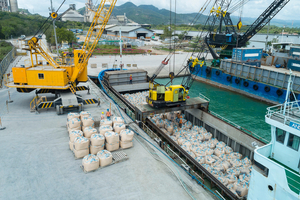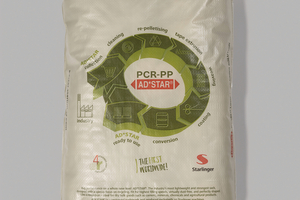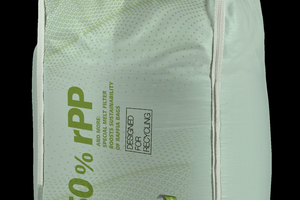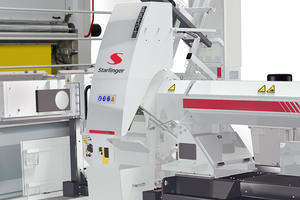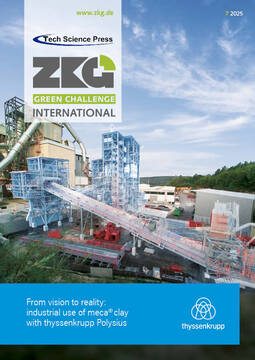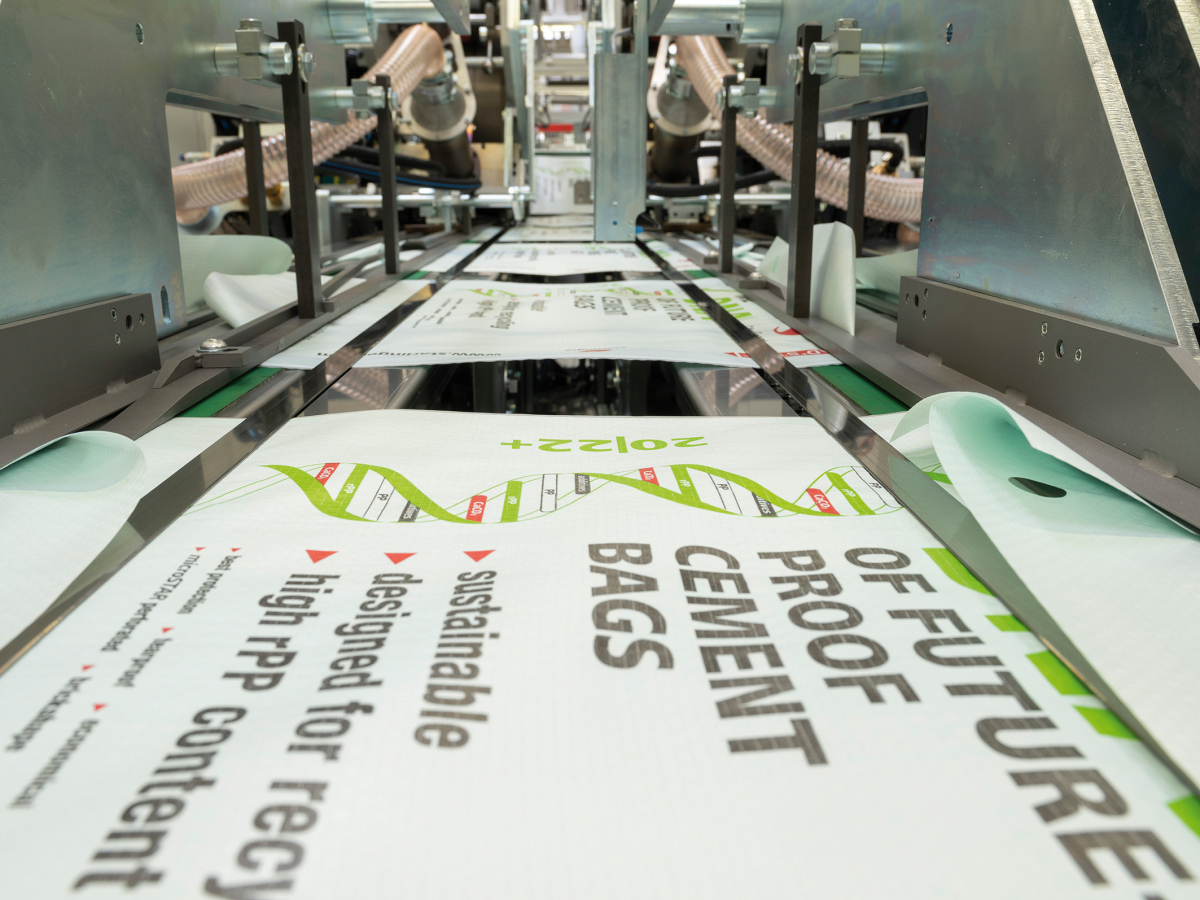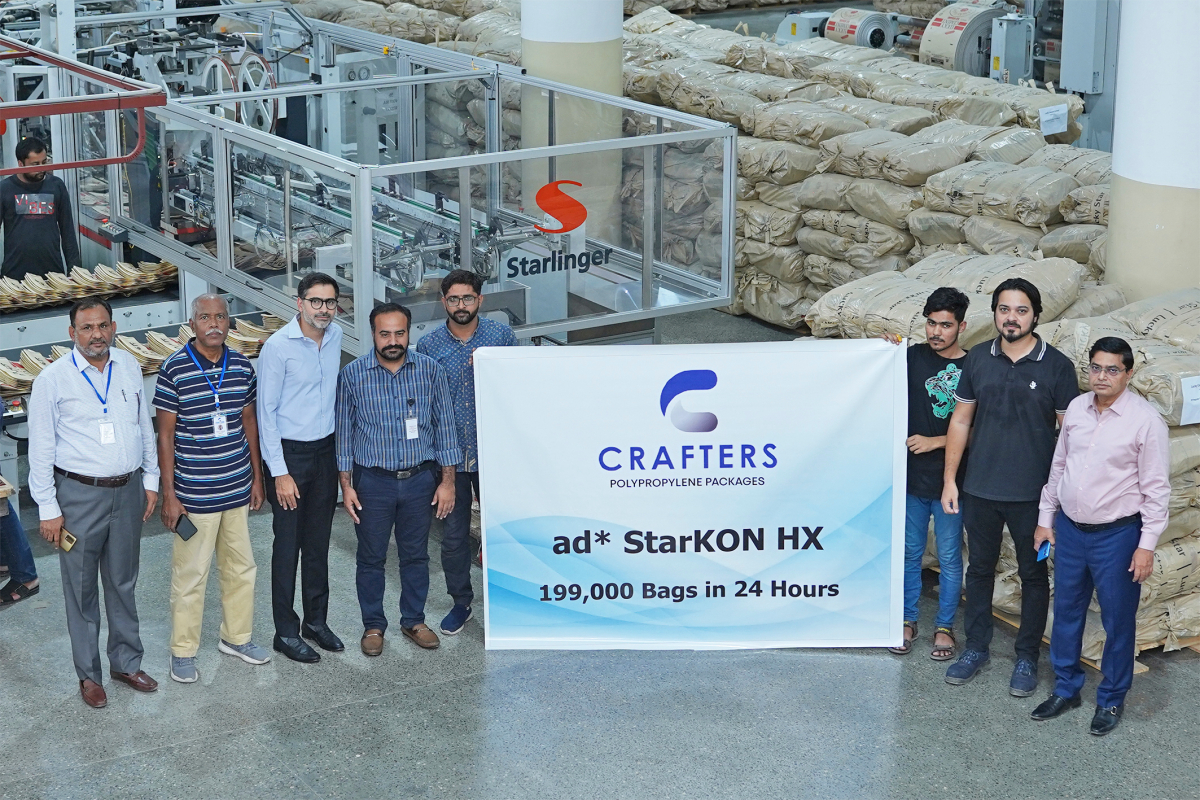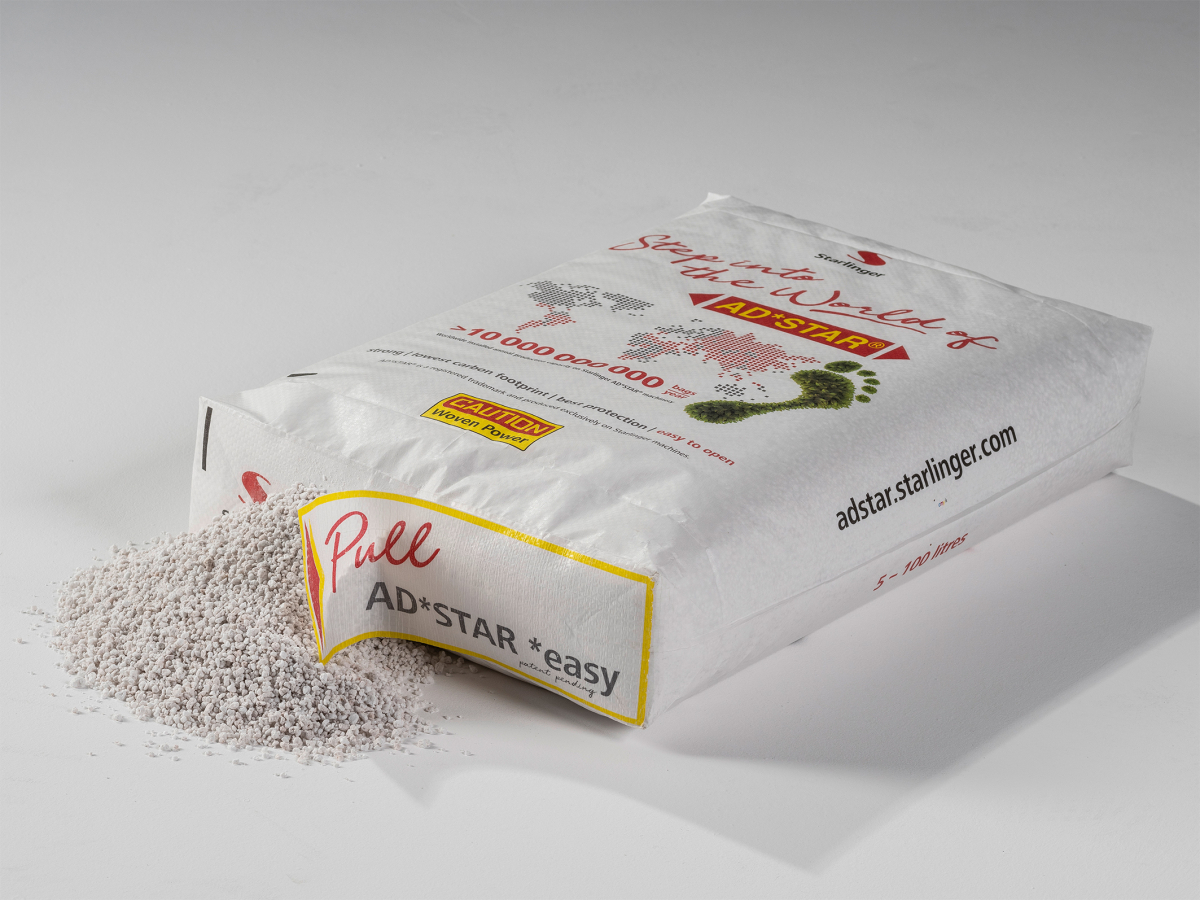Closing the loop on woven plastic packaging
With its “Circular Packaging” concept, Austrian-based Starlinger & Co GmbH provides a circular and ecologically conscious system for flexible plastic packaging such as FIBCs and sacks made of woven polypropylene tapes.
Increase sustainability, reduce plastic waste: Companies in almost every industry worldwide face the need to put these two goals into practice. In the area of woven plastic packaging for dry bulk goods, Starlinger, a supplier of technology for woven plastic bag production, provides a feasible solution: The future-oriented “Circular Packaging” concept establishes closed product loops for woven plastic packaging such as FIBCs (Flexible Intermediate Bulk Containers, or big bags) and other woven polypropylene sacks. Starlinger’s state-of-the-art technology allows to include high shares of recycled content in woven packaging made of polypropylene, or to produce big bags and sacks made entirely of recycled PET.
“Plastics are part of the solution,” says Harald Neumüller, the company’s Chief Sales Officer. “The problem isn’t the material itself — it’s how we handle it. When we establish closed product loops, plastics can become one of the most sustainable packaging options we have,” he explains.
This lies at the root of Starlinger’s “Circular Packaging” concept. As a supplier of both — machinery for woven plastic packing production as well as plastics recycling systems — the development of a closed product cycle for woven plastic bags was a logical step for the Austrian technology provider. The idea is to collect and recycle used bags and use the recycled polypropylene (rPP) for producing new ones, which avoids waste and also significantly reduces the need for virgin materials. Starlinger has developed special technological features to produce high-strength tapes containing recycled polypropylene; among them, for example, the SPB filter for tape extrusion. It ensures a stable extrusion process with thoroughly cleaned melt for producing tapes from rPP that fulfil all the requirements regarding tenacity, elongation and strength so they meet the specifications for woven bag production and, in case of big bags, ensure safe handling.
“It’s not enough to recycle,” Neumüller points out. “You have to ensure that the recycled material performs at the same level as virgin material.” Big bags, for example, are real heavy-duty champions with a remarkable product-to-package ratio: A bag weighing only 1.5 kg can carry up to 1500 kg of product. They are a versatile and widely used type of packaging for dry bulk goods and essential in industries ranging from agriculture to construction. Another, smaller, bag type, Starlinger’s AD*STAR block bottom valve bag, is widely used for packaging cement, gypsum and other building materials usually in quantities of 25 to 50 kg, especially in Asia and Africa. With Starlinger technology, both types of dry bulk packaging can be produced with high shares of recycled polypropylene, making them more sustainable without compromising their performance.
A closed loop for woven plastic bags furthermore means integrating “Design for Recycling” in the bag construction — they should be mono-material, not printed too much, and be equipped with easy-to-remove labels and inliners. This not only facilitates recycling but also ensures compliance with the stringent environmental regulations coming into force around the globe, such as the European Union’s Packaging and Packaging Waste Regulation and Great Britain’s Plastic Packaging Tax.
The “Circular Packaging” concept can of course also be applied to other types of woven polypropylene sacks developed by Starlinger — they are designed for recycling and can be produced using recycled material.
Big bag to big bag — 100% recycled
Starlinger’s long and deep experience in PET recycling has paved the way for big bags made from 100% recycled PET. PET, widely used in the production of bottles and other plastic products, can be recycled into a high-quality material with the same properties as virgin resin. Similar to bottle-to-bottle applications, big bags can be produced from 100% recycled PET using Starlinger tape extrusion and circular weaving technology. In addition to being a highly sustainable closed-loop packaging solution, PET big bags feature particularly good dimensional stability due to their high tensile strength and creep modulus. This makes them perfect for long-term storage or for packaging dry bulk goods with high flow characteristics and thus provide an economical alternative to IBCs (Intermediate Bulk Containers) made from rigid plastics, metal or cardboard.
Starlinger’s focus on resource conservation goes hand-in-hand with addressing global environmental challenges. The company’s long-standing expertise in recycling, coupled with its ability to produce high-performance packaging from recycled materials, offers feasible solutions to the waste crisis. “The challenge isn’t just reducing plastic waste,” says Neumüller. “It’s creating a system where it becomes the raw material for new, equally strong and safe products.”

